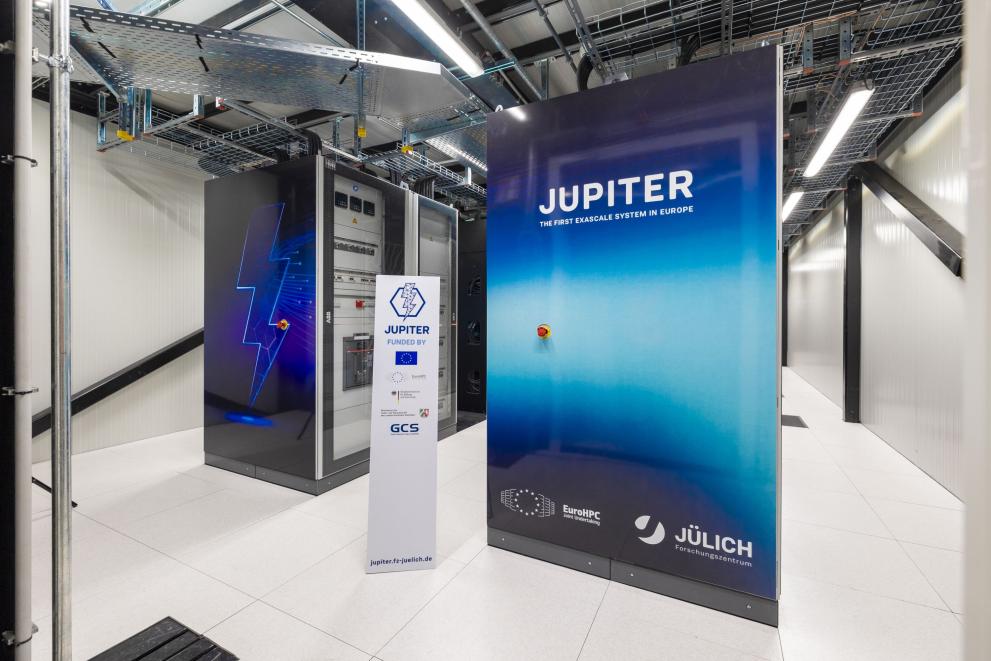JUPITER

System Overview
- Name: JUPITER (Joint Undertaking Pioneer for Innovative and Transformative Exascale Research)
- Location: Germany
- Owner: EuroHPC Joint Undertaking (EuroHPC JU)
- Operator: Jülich Supercomputing Centre (JSC)
- Released in: 2025
- Primary focus area: AI/ML
Architecture and Performance
JUPITER is going to be the first supercomputer in Europe to break the one quintillion arithmetic operations per second barrier, taking scientific simulations to a new level and enabling breakthroughs in the use of artificial intelligence. JUPITER is a dynamic modular supercomputer with two parts: a highly scalable Booster module for particularly compute-intensive problems, which is massively supported by GPUs, and a Cluster module that can be used very universally for all kinds of applications, especially for complex, data-intensive tasks. Both modules can solve scientific problems separately or together, depending on what is required.
Provider: ParTec-Eviden
Year: 2025
Performance: 1.0 ExaFLOP/s (more than 70 ExaFLOP/s in lower-precision 8-bit calculations)
Cores: ~ 1 944 000 (Arm)
Accelerators: ~ 24 000 (GH200)
This will enable JUPITER to achieve more than 70 ExaFLOP/s in lower-precision 8-bit calculations, making it one of the world’s fastest systems for AI. Its modular computer architecture enables a particularly high level of energy efficiency.
More info and updates
More about JUPITER Building Blocks
Benchmark Suite
Achievements and Impact
The first JUPITER module called JEDI was ranked #1 in the Green500 lists in May 2024 and November 2024
The second module called JETI reached rank 18 in the TOP500 and rank 6 in the Green500 list of November 2024
Europe’s first exascale supercomputer
Scientific Contributions:
JUPITER will enable breakthroughs in the use of artificial intelligence (AI) and take scientific simulations and discoveries to a new level
JUPITER Research and Early Access Program (JUREAP): In JUREAP, experts from JSC are working with more than 100 applications to assess and prepare them for exascale
Sustainability and Future Outlook
Environmental Impact:
The first module installed in April 2024, the JUPITER Exascale Development Instrument (JEDI), is capable of 72 billion floating-point operations per second per watt. In contrast, the previous leader achieved around 65 billion. According to estimates, JUPITER’s energy requirements will average around 11 megawatts. Further measures will help to use energy even more sustainably. The modular data centre in which JUPITER will be housed is designed to extract the heat generated during cooling and to then use it to heat the buildings on the Forschungszentrum Jülich campus.
Future Developments:
The modular supercomputing architecture: Pursue the tightest integration of quantum computers into the HPC environment.
The modular supercomputing architecture is ideal for integrating quantum computing capabilities into HPC workflows.